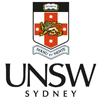Bachelor of Aviation (Remotely Piloted Aircraft Systems)
UNSW
CRICOS provider number: 00098G TEQSA provider ID: PRV12055
Courses included
code
This course has been cancelled
^ The indicative annual tuition fee is based on a full-time student enrolment load of 48 credit points per year, or 1.0 Equivalent Full-Time Student Load (1.0 EFTSL). Tuition fees are reviewed annually and may increase each year. Tuition fees are calculated on a student’s exact enrolment. UNSW students enrolled in most courses have some flexibility in the subjects they choose. At times these subjects will be from outside their own faculty. For example, a Commerce student may choose elective subjects from a range of other faculties; a student in a combined Law degree with Engineering or Science will choose subjects from Science and Engineering and subjects from Law. These choices may result in a higher or lower total fee for the year.
About
Discover the possibilities of an exhilarating career as a qualified drone pilot. An increasingly valuable qualification across many established and emerging industries, the Bachelor of Aviation (Remotely Piloted Aircraft Systems) is one of the first university courses of its kind. Taught by UNSW’s globally-recognised School of Aviation, you’ll gain the technical expertise and practical skills to operate remotely piloted aircraft systems (RPAS) for a wide range of applications.
This degree not only educates and trains remote pilots to the highest commercial standards, it also develops future industry leaders and managers. You’ll combine the study of theory with 40 hours of crewed flight training and 40 hours of uncrewed flight training. This will include 20 hours of commercial experience with a leading industry partner.
For further information visit the UNSW Degree Finder or contact us on 1300 UNI NSW (1300 864 679).
Flight training costs: You’ll need to pay for the flight training costs portion of this degree. In 2024, the anticipated standard cost of flight training in an aeroplane to achieve your Recreational Pilot Licence, as well as 40 hours of flight training for the Remote Pilot Licence and Commercial Experience component is $48,000. Students will be notified of their flight training costs in October of the year before they undertake the training.
ATAR Profile: Some UNSW offers were issued based on the UNSW Gateway Early Conditional Offer Scheme with a lower ATAR entry requirement. Refer to the Admissions Information for a complete ATAR profile by degree.
Areas of study
Aviation (Remotely Piloted Aircraft Systems).
Career opportunities
Work as a remote pilot across a wide range of industries including aerospace, agriculture, military and defence, creative industries, construction industry, and medical and emergency services. Operational roles include chief drone pilot, drone flight instructor, project manager, crewing, scheduling, performance and safety. drone photographer and filmmaker, drone 3D modeler, surveying and inspection, search and rescue team member.
Professional recognition
Recreational Pilot Licence (RPL) and Remote Pilot Licence (RePL)
Practical experience
Up to 200 hours of flight training and approximately 80 hours of simulator training in block release periods. The minimum standard of a commercial pilot's licence must be obtained for award of the degree; however, progression rates for most students will allow options such as Command Multi Engine Instrument Ratings, Grade 3 Instructor Rating, jet or turbine endorsements or line-oriented flight training.
Fees and charges
Refer to UNSW current fee information.
Essential requirements for admission
Direct application/Interview/Aptitude test: In addition to submitting a UAC application, students must submit a direct application to the School of Aviation and attend an interview.
Medical certificate: Prior to beginning flying training, students need to obtain an Australian Class 1 Civil Aviation Safety Authority medical certificate from a designated aviation medical examiner and be assessed for International Civil Aviation Organization English requirements for pilots.
Admission criteria
Applicants with recent secondary education
Assumed knowledge: Mathematics Advanced.
Recommended studies: Physics.
Other applicants
Refer to UNSW general admission criteria.
Further information
View all details of this course on the UNSW website.
The academic content of all programs is subject to routine review.
Course updates
Courses are added and cancelled throughout the admissions year and course details are subject to change. Check the course search regularly.
Double degree options
Double degree options are available in a number of UNSW courses. For further information, visit the UNSW Sydney website.
Honours at UNSW
Studying honours offers a chance to develop your research and professional skills guided by staff who are passionate about research and the development of new researchers. Honours is an integral component of many UNSW courses or may be offered as an additional year of study to meritorious students.
